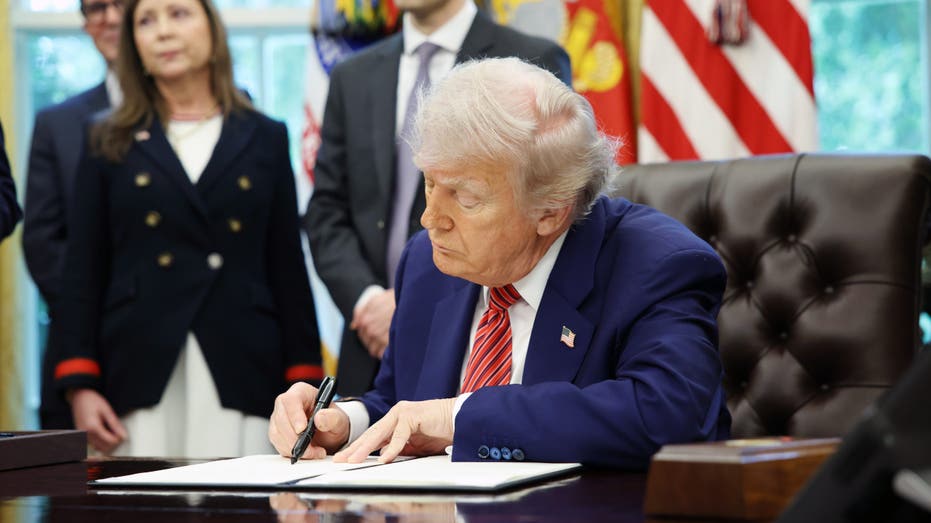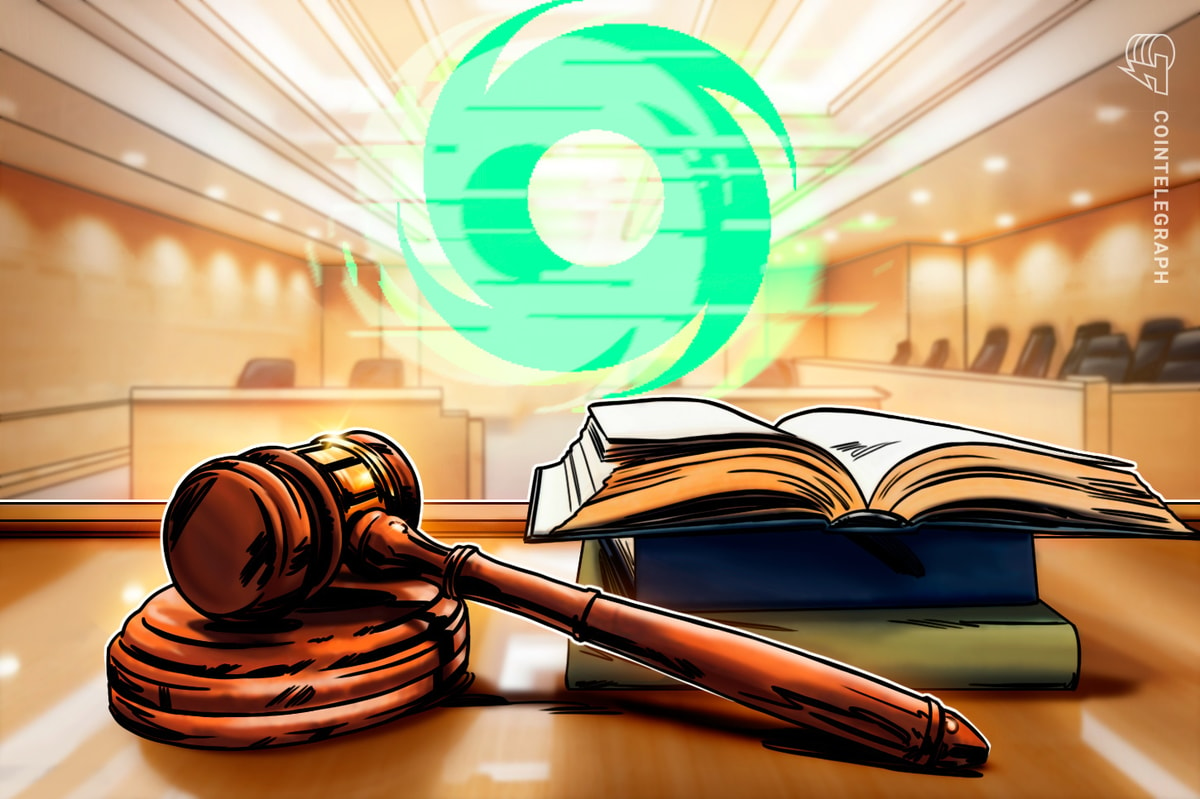President Donald Trump’s hallmark legislation includes a staggering $5 trillion hike to the debt ceiling — a move that gives Republicans added leverage in bipartisan negotiations. With control of both chambers of Congress, Republicans are well-positioned to use the debt limit as a tool in a classic display of political brinkmanship.
As the U.S. government nears a fiscal cliff, Republicans could potentially use the looming deadline to pressure Democrats into making policy concessions. In other words, Democrats would have to decide between default or compromise.
FIVE MAJOR POLICIES TO KNOW FROM THE ‘BIG, BEAUTIFUL BILL’
The debt limit — also referred to as the debt ceiling — is a cap set by Congress on the total amount of money the federal government can borrow to pay its existing bills. A few examples of these financial obligations include Social Security payments, tax refunds and salaries for the U.S. military.
Failing to raise the debt limit before the Treasury runs out of cash could trigger further credit downgrades and roil financial markets. In short, Republicans and Democrats want to avoid a U.S. government default because it undermines U.S. economic credibility.
As a result, talks concerning the debt ceiling are a powerful bargaining tool on Capitol Hill.
“The way these negotiations typically go is, in exchange for increasing the debt ceiling, spending cuts are made,” explained E.J. Antoni, chief economist at the conservative-leaning Heritage Foundation. “It could look something like we agree to increase the debt ceiling by $1 trillion in exchange for cutting $1 trillion or so in spending over the next decade. Obviously, those numbers might be higher or lower, but that’s the typical calculus.”
Antoni told FOX Business that the spending cuts largely depend on which party is in power.
“I think this time around you’ll see a particular emphasis on reducing things like abuse, corruption, fraud and waste because of the impact of DOGE (the Department of Government Efficiency). There has been so much exposure to those types of abuses in the federal budget that I think that will be low-hanging fruit when we come to the next debt ceiling talk,” Antoni said.
INSIDE THE CBO SCORE THAT BECAME AMMO FOR BOTH SIDES AND NEARLY BLEW UP THE GOP’S FLAGSHIP BILL
Michael Strain, director of economic policy studies at the American Enterprise Institute, commended the debt ceiling hike in Trump’s massive tax and spending bill.

“Increasing the debt ceiling should be a routine function of the government, so tucking the increase into a must-pass bill is smart,” Strain, who is also the Arthur F. Burns Scholar in political economy at AEI, told FOX Business. “Doing so will spare a potentially harmful and damaging fight over increasing the debt ceiling.”
“It’s certainly possible that both parties will have to make concessions the next time around,” Strain added.
TREASURY SAYS US IS ‘NEVER GOING TO DEFAULT’ AS DEBT LIMIT DEADLINE LOOMS
Trump has previously called on Republicans to resolve the debt ceiling and avert a national default and Antoni predicts this will remain central to the president’s economic agenda.
“When we look at these future debt ceiling negotiations down the road, don’t underestimate President Trump’s ability to negotiate,” Antoni said. “Repeatedly, analysts and political pundits and even economists have thought that he was not going to be able to get as good of a deal as he has gotten in the past,” he added.
Critics of raising the debt limit argue that it postpones an inevitable reckoning with unsustainable government spending. In other words, Congress is pushing the much-needed debate over runaway spending and mounting debt down the road.
What’s more, Trump’s landmark legislation is expected to increase the national debt by more than $3 trillion in the next 10 years — a burden that’s already approaching $37 trillion.
In May, credit rating agency Moody’s lowered the U.S. rating to one notch below its top-tier Triple-A status, citing concerns over surging debt levels.
MOODY’S DOWNGRADES US CREDIT RATING OVER RISING DEBT
Romina Boccia, director of budget and entitlement policy at the Cato Institute, called the $5 trillion debt ceiling increase a “striking display of fiscal hypocrisy.”
“Republicans have long argued that the debt ceiling is one of the few leverage points to enact spending reductions. But this debt ceiling increase flips that script—it’s nearly a dollar-for-dollar increase in debt for new deficits, with far more modest spending reductions that are delayed, increasing the risk that they could be overturned,” Boccia told FOX Business.
Elon Musk, the CEO of Tesla and SpaceX, has emerged as one of the loudest critics of Trump’s massive tax and spending measure, calling it a “debt slavery” bill.
ELON MUSK LAUNCHES ‘AMERICA PARTY’ AFTER TRUMP SIGNS HISTORIC SPENDING BILL: ‘WASTE & GRAFT’
“Hitting the debt ceiling is the only thing that will actually force the government to cut waste and fraud. That’s why the debt ceiling legislation exists!” Musk wrote in a string of posts on X.
“What’s the point of a debt ceiling if we keep raising it?” asked Musk, who formerly led a crusade against wasteful government spending at DOGE.
The billionaire, who spent nearly $300 million backing Trump and other 2024 Republican campaigns, also called for a “new political party.” Over the weekend, Musk announced the formation of the “America Party.” Musk said the party will target key seats in Congress.
Representatives for Musk did not immediately respond to FOX Business’s request for comment for purposes of this story.
Read the full article here














